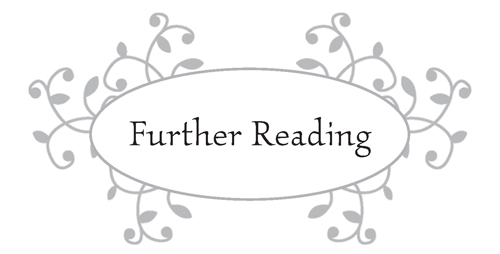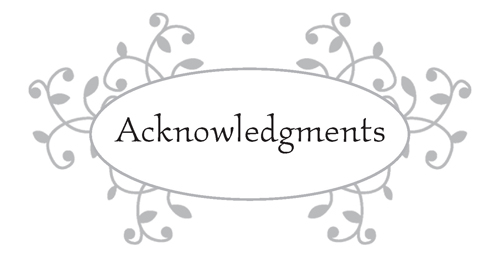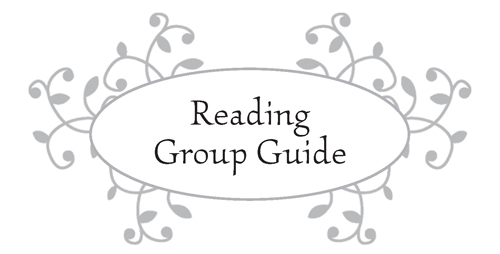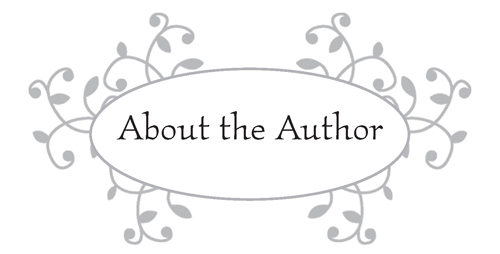The Queen of Last Hopes (41 page)
Read The Queen of Last Hopes Online
Authors: Susan Higginbotham


J. J. Bagley,
Margaret of Anjou, Queen of England
. London: Herbert Jenkins, Ltd, 1948. This is outdated in some respects, but is probably the best of the older biographies of Margaret.
Juliet Barker,
Conquest: The English Kingdom of France 1417–1450
. London: Little, Brown, 2009.
Helen Castor,
She-Wolves: The Women Who Ruled England Before Elizabeth
. London: Faber and Faber, 2010.
B. M. Cron, “Margaret of Anjou and the Lancastrian March on London, 1461.”
The Ricardian
(December 1999).
Diana Dunn, “Margaret of Anjou, Queen Consort of Henry VI: A Reassessment of Her Role, 1445–53.” In Rowena Archer, ed.,
Crown, Government and People in the Fifteenth Century
. New York: St. Martin’s Press, 1995.
Diana Dunn, “The Queen at War: The Role of Margaret of Anjou in the Wars of the Roses.” In Diana Dunn, ed.,
War and Society in Medieval and Early Modern Britain
. Liverpool: Liverpool University Press, 2000.
John Gillingham,
The Wars of the Roses
. Baton Rouge: Louisiana State University Press, 1981.
Anthony Goodman,
The Wars of the Roses
. New York: Dorset Press, 1981.
R. A. Griffiths,
The Reign of King Henry VI
. Gloucestershire: Sutton, 2004 (paperback edition).
Michael Hicks,
The Wars of the Roses
. New Haven and London: Yale University Press, 2010.
Michael Hicks,
Warwick the Kingmaker
. Oxford: Blackwell Publishers, 2002.
P. A. Johnson,
Duke Richard of York: 1411–1460
. Oxford: Oxford University Press, 1988.
Margaret Kekewich,
The Good King: René of Anjou and Fifteenth Century Europe
. London: Palgrave Macmillan, 2008.
J. L. Laynesmith,
The Last Medieval Queens
. Oxford: Oxford University Press, 2005 (paperback edition).
Helen Maurer,
Margaret of Anjou: Queenship and Power in Late Medieval England
. Woodbridge: The Boydell Press, 2003.
A. J. Pollard,
Warwick the Kingmaker: Politics, Power and Fame
. London and New York: Hambledon Continuum, 2007.
Charles Ross,
Edward IV
. New Haven and London: Yale University Press, 1997.
Cora Scofield,
The Life and Reign of Edward the Fourth
. London: Frank Cass & Co. Ltd, 1967 (reprint of 1923 edition).
Bertram Wolffe,
Henry VI
. New Haven and London: Yale University Press, 2001.

My work in writing and researching this novel has been made more pleasant by a number of people. I would like to especially thank Lesley Boatwright, who translated a long passage of Latin for me, and Kathryn Warner, who helped me with several questions about medieval French. As with my last novel, I greatly benefited from the publications and other resources of the Richard III Society.
A special thanks goes to all of those who have discussed Margaret of Anjou and her contemporaries with me on my blog and on Facebook. Your interest in Margaret’s story, and your sympathy for the triumphs and tribulations of a long-dead medieval queen and her allies, have kept me going through many a rough patch.
I would like to thank my former editor, Sara Kase, and my current editor, Shana Drehs, for their encouragement, as well as my agent, Nicholas Croce. Regan Fisher gave my manuscript a sound proofreading.
Finally, I must thank the usual suspects: my parents, Charles and Barbara Higginbotham; my husband, Don Coomes; and my children, Thad and Bethany. Having made my thanks, I look forward to seeing how many more bookcases I can slip into the house between the writing of this and the completion of my next novel.

By Susan Higginbotham
1. Fifteen-year-old Margaret is instructed by her uncle King Charles to urge Henry VI to cede Maine to the French. Should she have refused to do so? Could she have? Would her refusal have changed anything, or would Henry VI have likely made the disastrous decision to cede Maine on his own?
2. Though many people share the blame for the reversals in France, William de la Pole bears the brunt of popular anger and is brutally murdered for his role in the disaster. Can you think of examples of such scapegoating today?
3. Margaret suspects that the Duke of York is behind Suffolk’s murder, Cade’s rebellion, and the rumors of her adultery, and she also believes that York would have murdered Henry VI in order to attain the crown sooner rather than later. Do you believe that her suspicions were justified? Had she been less suspicious, do you think York would have ultimately claimed the throne?
4. Many events contribute to the outbreak of civil war—the English losses in France, Henry’s temporary insanity and weakness as a ruler, Margaret’s unpopularity as a Frenchwoman, the Duke of York’s belief that his claim to the throne is better than Henry VI’s. Do you think any one of these factors was determinative, or was it simply a fatal combination of circumstances? Do you believe war could have been averted?
5. William de la Pole’s four brothers all die serving in the war in France, while all of the Beaufort brothers and their half brother Tom die fighting for Margaret’s cause. Can a war over territorial rights, like the Hundred Years War, or a dynastic struggle, like the Wars of the Roses here, be worth wiping out entire families in fighting? What about a war against clear-cut tyranny like Hitler and the Third Reich?
6. Facing the risk that her own son might die in battle, Margaret wonders at Tewkesbury whether it might have better to accept York’s Act of Accord. Should she have? Would you have as a ruler and a mother?
7. Henry VI never leads men into battle, but he faces shipwreck and his own death calmly. What are the various types of courage people display in this novel? Are some sorts of courage more admirable than others?
8. During his imprisonment, William de la Pole takes some comfort in reading poetry, and Margaret at the end of her life finds consolation in her father’s verses. Are there literary works that you turn to in times of trouble?
9. Margaret is the target of malicious gossip when she begins to assert herself on behalf of her son. Over five hundred years later, character assassination is still a prominent—and often effective—feature in politics. Can you see this situation ever changing?
10. Hal begins his attempts to seduce Margaret shortly after he defeats his enemy and Margaret’s, the Duke of York, in battle. Margaret does not succumb until she is on her own in Rouen. What does their timing say about them?
11. During an unguarded moment, Margaret dreams of a simpler life as Hal’s duchess. Do you believe that she would have been happier as an ordinary wife and mother instead of as a queen? What about Henry VI? Do you believe he would have been happier as a private person?
12. Margaret tells Pierre de Brézé that she loves both Henry and Hal, and Hal himself professes his love to both Margaret and Joan. Do you believe it is possible to truly romantically love two people at the same time? Can you see yourself doing so?
13. Hal Beaufort’s sudden betrayal of Henry and Margaret benefits not only Hal personally, but also his imprisoned brother Edmund and his young son. His decision to return to Henry VI, though it eases his conscience, jeopardizes not only his own life, but also the security of those he loves. Would you have made the same decisions he made?
14. Henry VI readily forgives both Margaret and Hal for their adultery, as he forgives many of the wrongs done to him throughout the novel. Other characters, like Hal after his father’s murder at St. Albans, carry grudges that determine many of their subsequent actions. Can one be too forgiving or too vengeful, or does it depend entirely on circumstances? Is there a middle ground between the two?
15. The love affair between Margaret and Hal Beaufort is the author’s invention, albeit with some foundation in contemporary gossip. How far do you think a historical novelist should go in fictionalizing history? In filling in gaps in history?
16. Just as Margaret is married to further peace between England and France, Anne Neville is married to further the political alliance between her father and Margaret. Both accept their roles without protest. Are they mere pawns, or something more? What of their husbands, who also enter into their marriages for political rather than personal reasons?
17. York’s son Edmund and Margaret’s son Edward, each aged seventeen, fight and die in battle. Edward IV claims the throne for himself and leads his army to victory when he is not yet nineteen. Margaret leaves France to marry when she is fifteen. Do you believe that modern-day adolescents would be capable of taking on the same tasks as their medieval counterparts did?
18. At the beginning of the novel, Margaret says that as a woman, she had no role in the negotiations over Maine and wanted none. As the novel progresses, however, she takes on more and more power until her role and Henry’s are virtually reversed. Do you think she wanted such power? Did you believe her when she told her son before Tewkesbury that she would give up her leadership role to him?
19. Edward IV orders the murder of Henry VI, thereby removing a figure that Lancastrian loyalists could rally around. Can a political murder be justified if it results in peace for many? If you were in Edward IV’s position, could you have ordered such a murder? Do you believe that such a murder would be acceptable today?
20. Margaret reflects that in a kinder world, she and Cecily of York might have become friends. Could the same be said for others in the novel? Can friendship flourish in the midst of a power struggle?
21. When the exiled Jasper Tudor writes to the dying Margaret, the Lancastrian cause seems hopeless to Margaret. Three years later, Jasper’s optimism is justified when his nephew Henry becomes king and founds the Tudor dynasty. Would you have been able to keep hope alive in exile?

Susan Higginbotham lives with her family in North Carolina and has worked as an attorney and as an editor. Her first two historical novels,
The Traitor’s Wife
and
Hugh and Bess
, were republished by Sourcebooks in 2009;
The Traitor’s Wife
won the gold medal for historical/military fiction in the 2008 Independent Publisher Book Awards. Her third novel,
The Stolen Crown
, was published in 2010. More about Susan’s novels and the historical background to them can be found on her website, www.susanhigginbotham.com, and on her blog, Medieval Woman.
